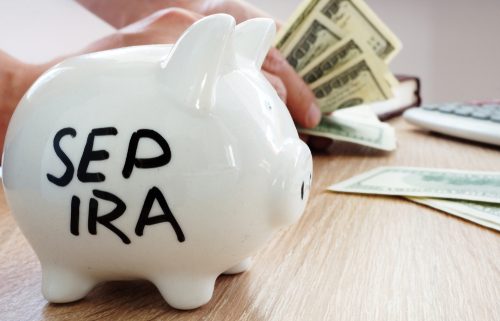Are You the Right Type of Investor for a Self-Directed SEP IRA?
You might have heard of the Self-Directed SEP IRA. But what happens when you run a business and you start to realize that you need a flexible way to invest? What happens when the low contribution limits of a Traditional or Roth IRA simply are not enough to keep up with the retirement strategies you have planned? Then it’s time to do more research on the SEP-IRA and find out how a Self-Directed SEP IRA can be used to create a retirement plan that not only helps you with your retirement strategy, but can even serve as a way to incentivize any future employees you might have.
What is a Self-Directed SEP IRA Anyway?
Let us start with the definition. A SEP IRA stands for a Simplified Employee Pension plan IRA. As you might imagine, it is a plan that is designed to be used throughout a company. However, many single-person companies can still use the SEP IRA for contributing to retirement, which allows them to take advantage of it is simple, straight-forward style.
One advantage of the SEP IRA is that it does not come with the obstructive start-up costs and fees that many employer-created plans require. And because the contributions are tax-deductible, it can actually add up to tax savings by the end of the year, assuming that you’re already putting money away for retirement. The SEP IRA is also flexible, meaning that you do not have to contribute the same amount of money through a SEP IRA every single year. It is variable, which allows you to make contributions as you see fit as long as they follow the rules.
The Particularities of the Self-Directed SEP IRA
Let us dig a bit deeper and look at some of the particularities that make the SEP IRA, or the Self-Directed SEP IRA, such a unique plan.
- The SEP IRA allows you to create an employee retirement plan that allows you to decide how much you want to contribute to the plan. You can also use this benefit as an incentive for attracting talent for your business. However, if you only work for yourself and do not have any employees, you can still use the SEP IRA for your own retirement needs.
- The SEP IRA is available to sole proprietors, independent contractors, self-employed individuals, partners, and certain corporations.
- Contributions made toward a SEP IRA will be tax-deductible, meaning you are using “before-tax” dollars to invest. This money will be taxes upon withdrawal after retirement and will include both taxes and penalties for early withdrawal.
- Employees will still have control over the contributions they make to the plan.
The SEP IRA is very similar to a Solo 401(k) but tends to be focused more on creating a company-wide pension plan—which is very flexible if you are the only person in your company.
How Do You Tell If You are the Right Type of Investor for a SEP-IRA?
The good news is that there are a lot of investors who might fit the bill for a Self-Directed SEP IRA. However, it is aimed at individuals who work for themselves, or companies that want to create a pension plan for their employees. For that reason, you would not seek out a SEP IRA if, for example, you already work at a company and do not have a business of your own that generates income.
If you’re a sole proprietor, independent contractor, or a business owner who has been looking for more flexibility to steer yourself through retirement, a Self-Directed SEP IRA is worth your consideration. Not only do they feature high contribution limits and tax-deductible contribution rules, but a SEP IRA can be a flexible way to grow your business when you want to hire talented individuals, all while providing you with flexible options to manage it on your terms.
Interested in learning more about Self-Directed IRAs? Contact American IRA, LLC at 866-7500-IRA (472) for a free consultation. Download our free guides or visit us online at www.AmericanIRA.com.








